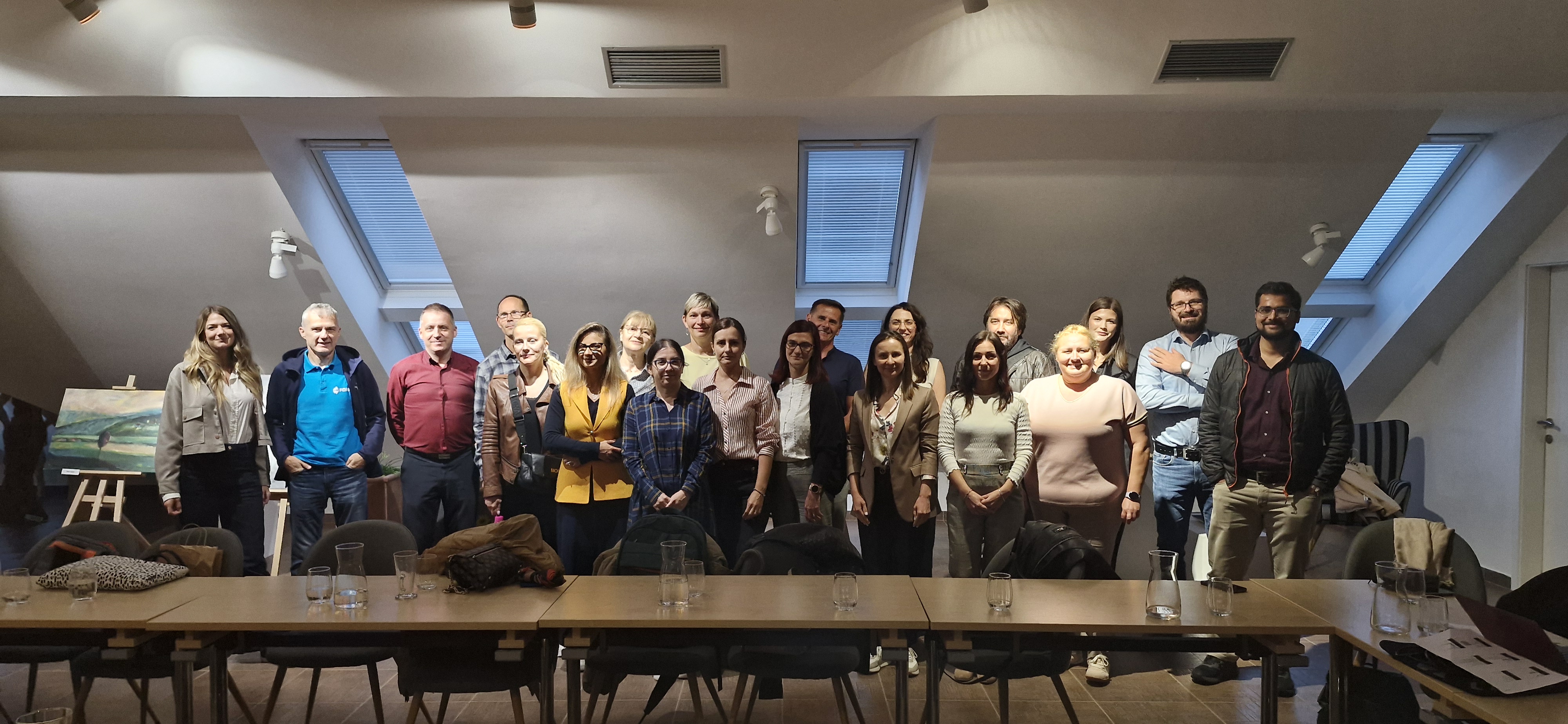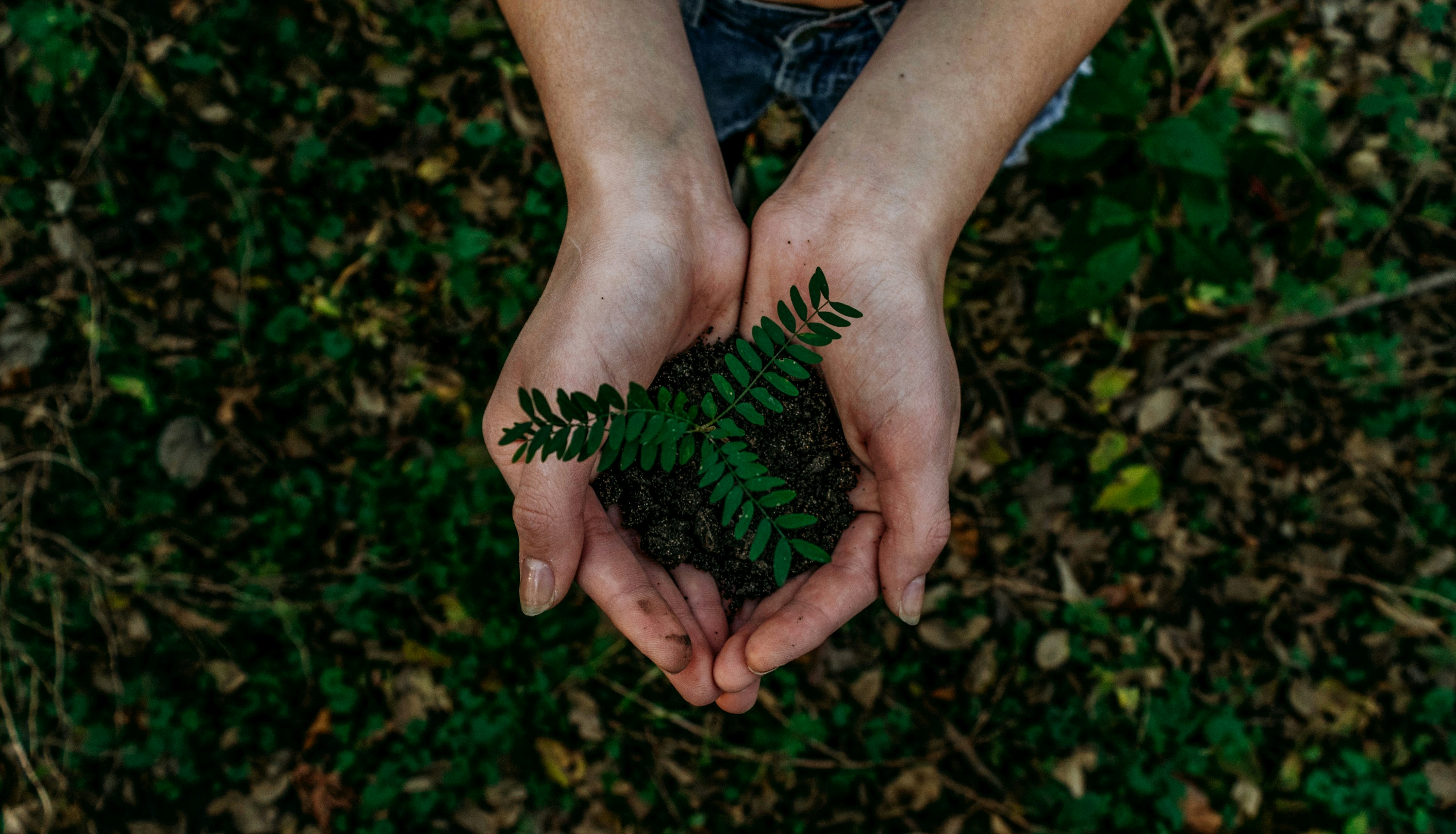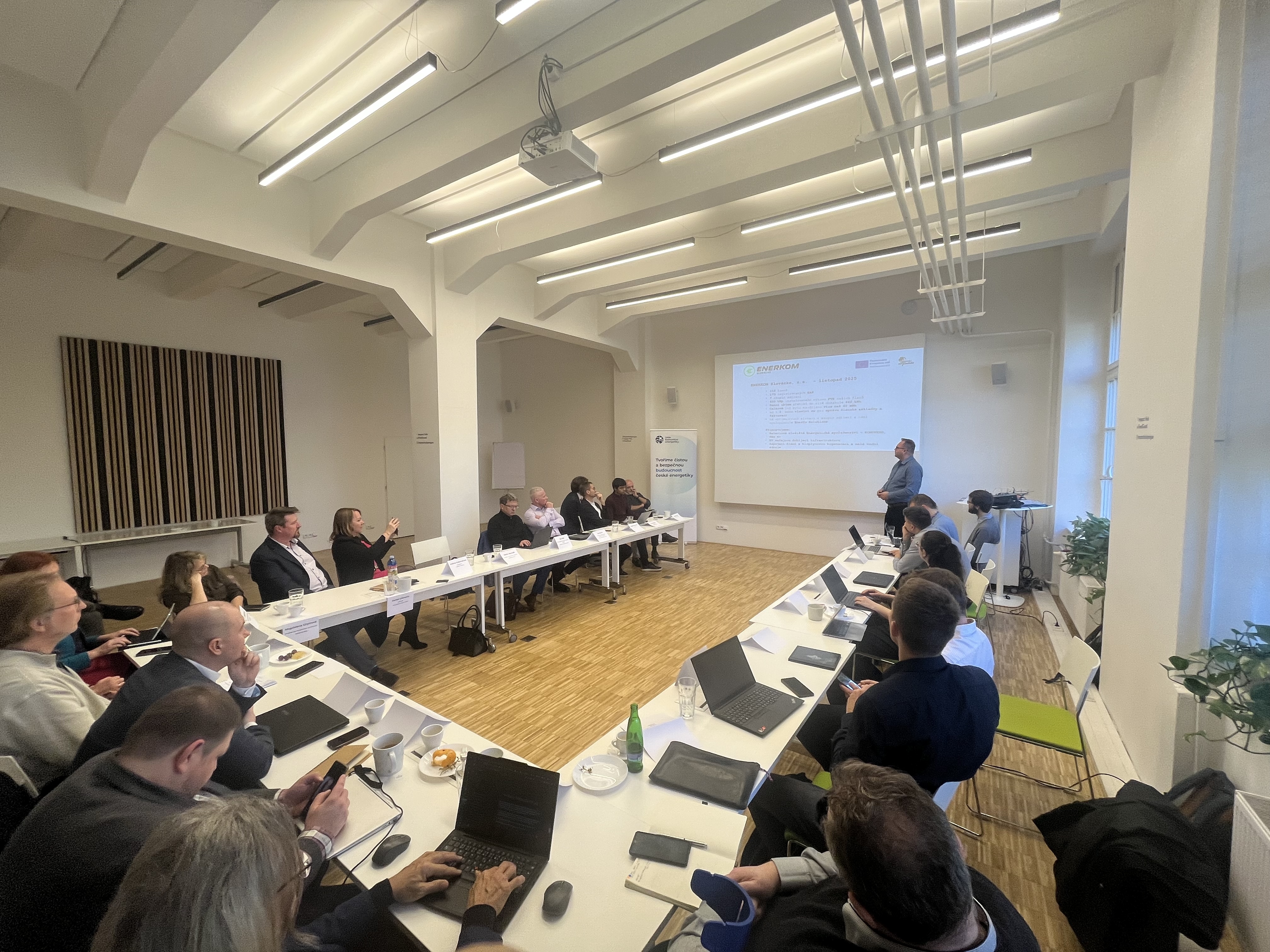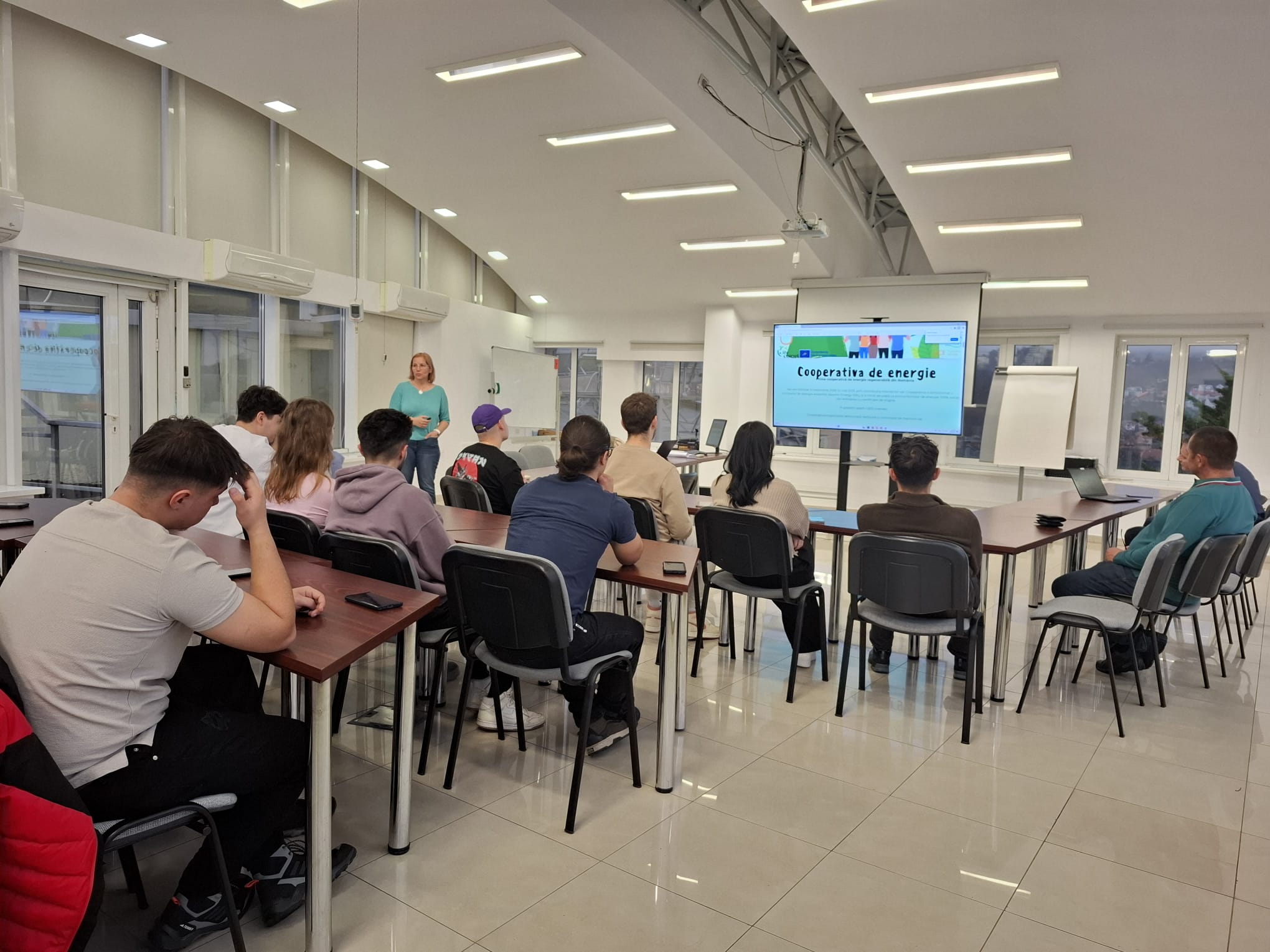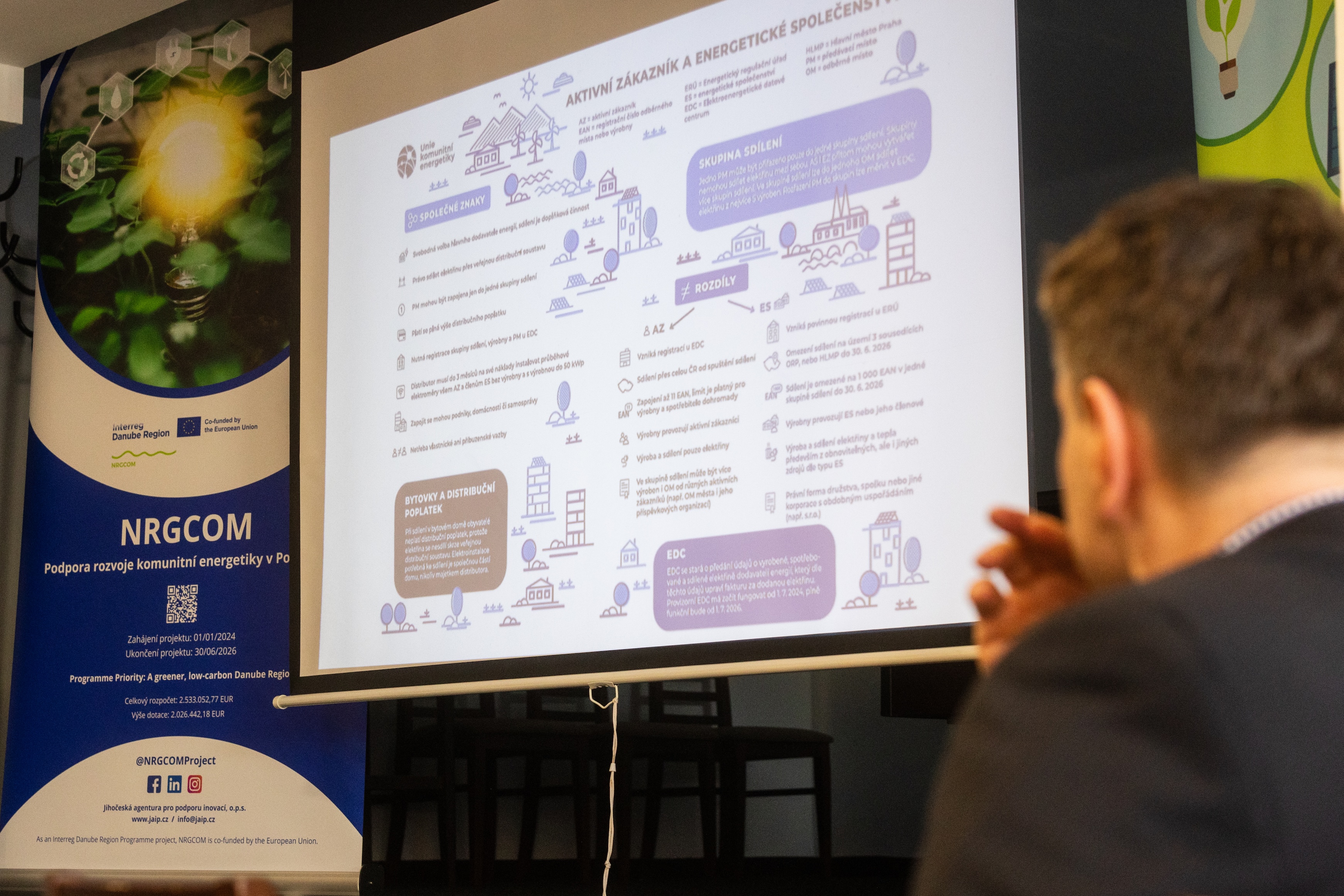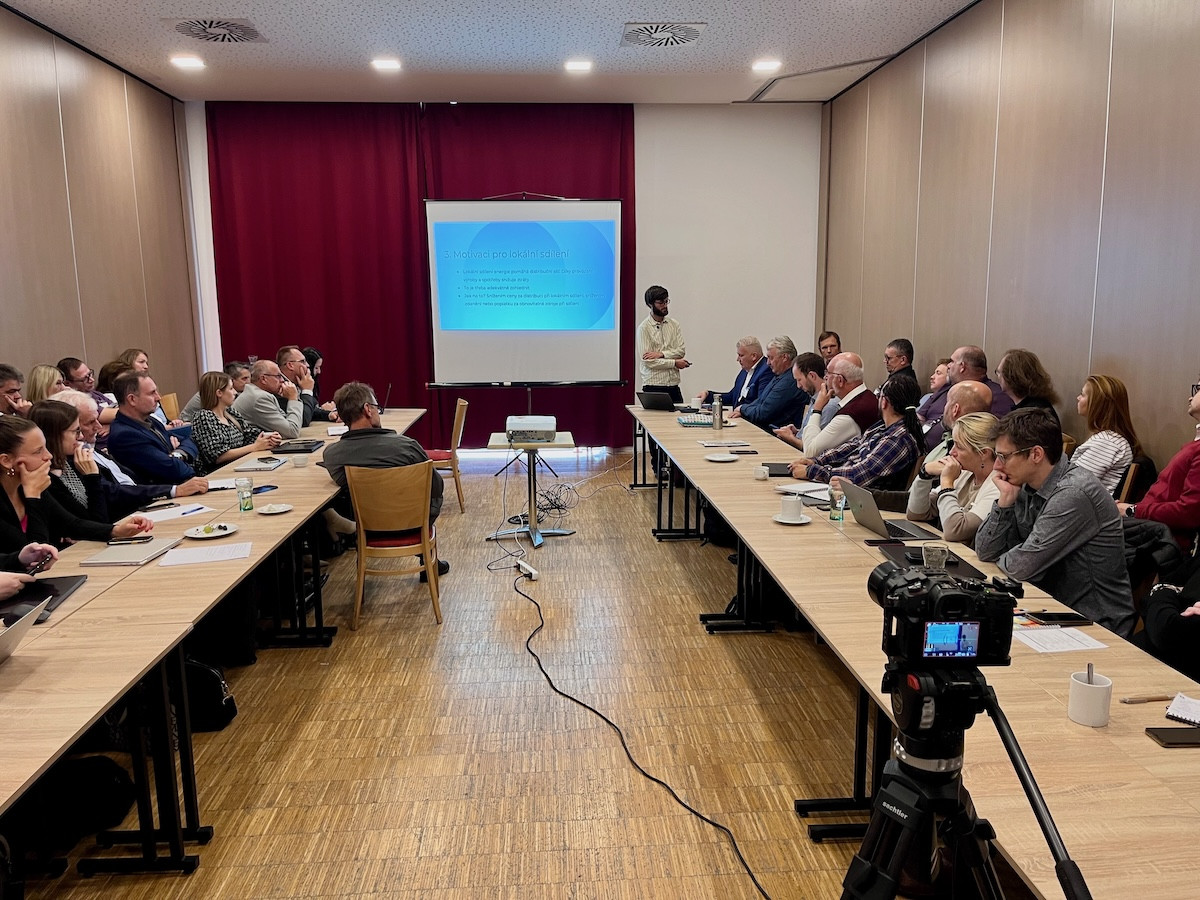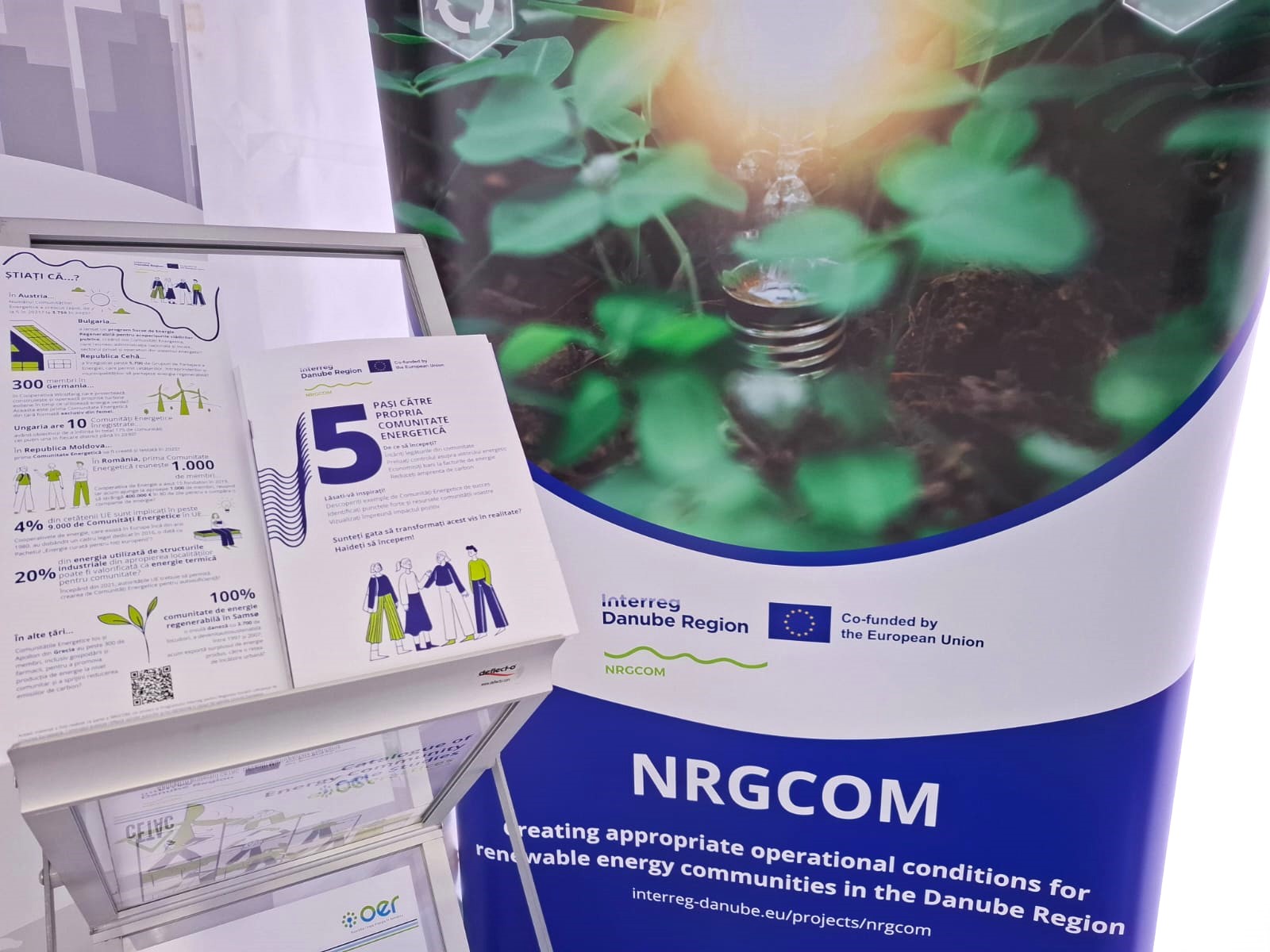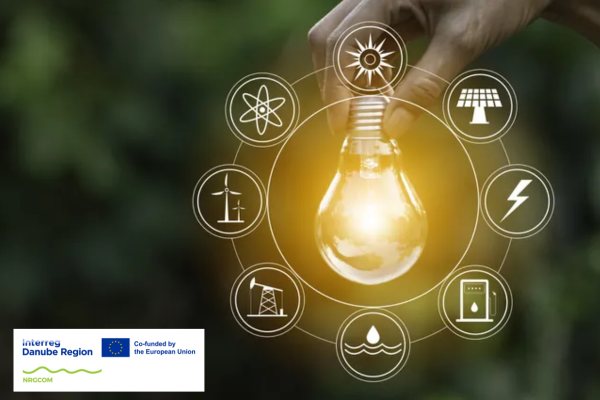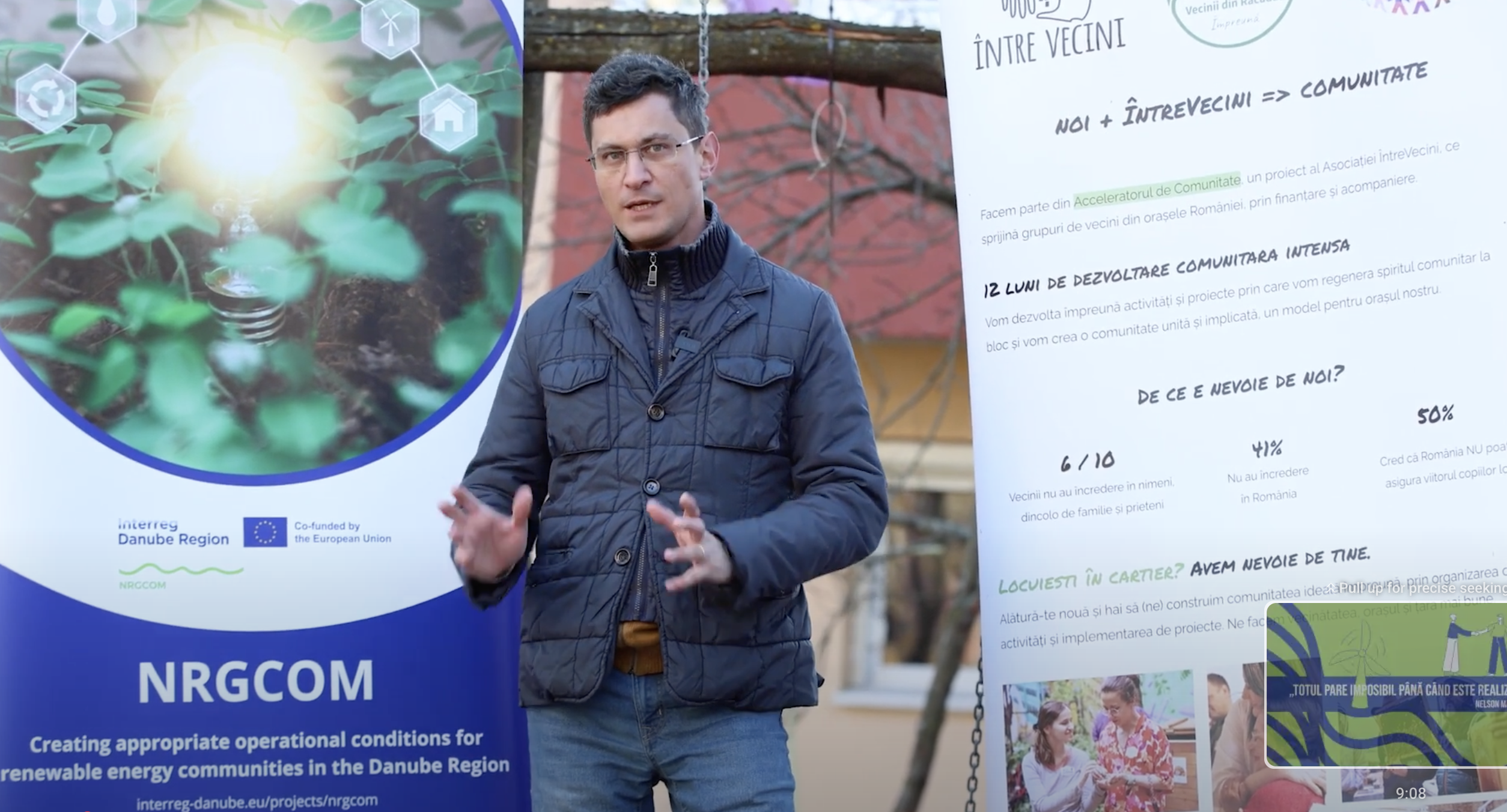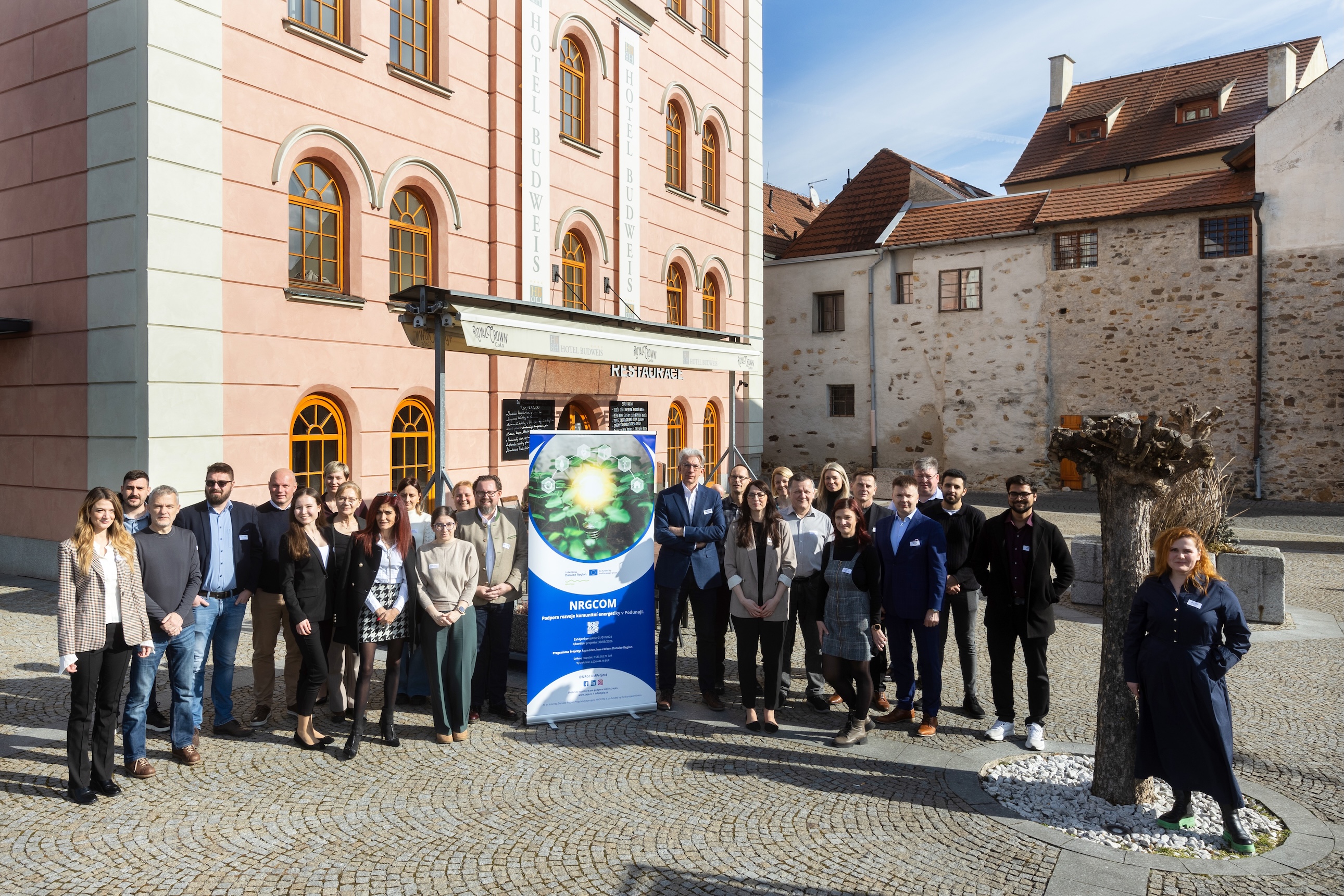
NRGCOM Partners Reflect on Achievements and Future Goals at Key Meeting in Budweis
The 6th NRGCOM project partner meeting took place from 26 to 28 February 2025 in Budweis, Czech Republic. Hosted at Hotel Budweis, the event gathered project partners for a comprehensive review of the first year of implementation, discussions on the progress of project activities, and strategic planning for the next phases. The meeting also included a study visit to a local energy community, providing practical insights into their operation.
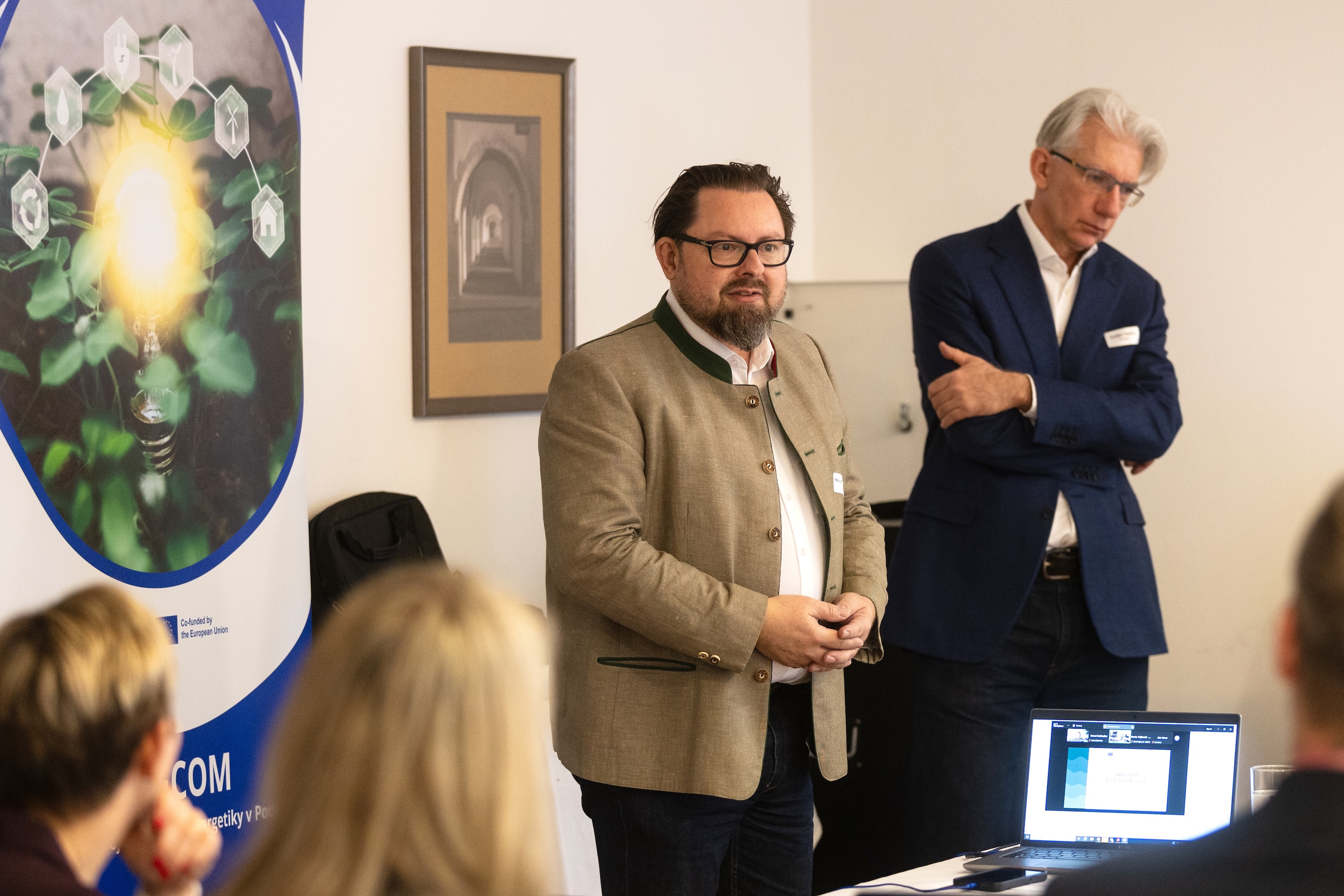
The event commenced with an informal partner dinner at Solnice Restaurant, where colleagues from the hosting partner, JAIP, warmly welcomed attendees. The following morning, the professional program opened with welcome speeches by Michaela Novotná, Director of JAIP, Horst Schindler from the Interreg Danube Region Programme Managing Authority and Joint Secretariat (MA/JS), and Zoltán Haász, Managing Director of STRIA. Schindler acknowledged the partners' commitment and highlighted the importance of collaboration in the renewable energy sector. Haász emphasized the significance of the first-year review as a key moment for assessing achievements, addressing challenges, and refining project activities to meet objectives.
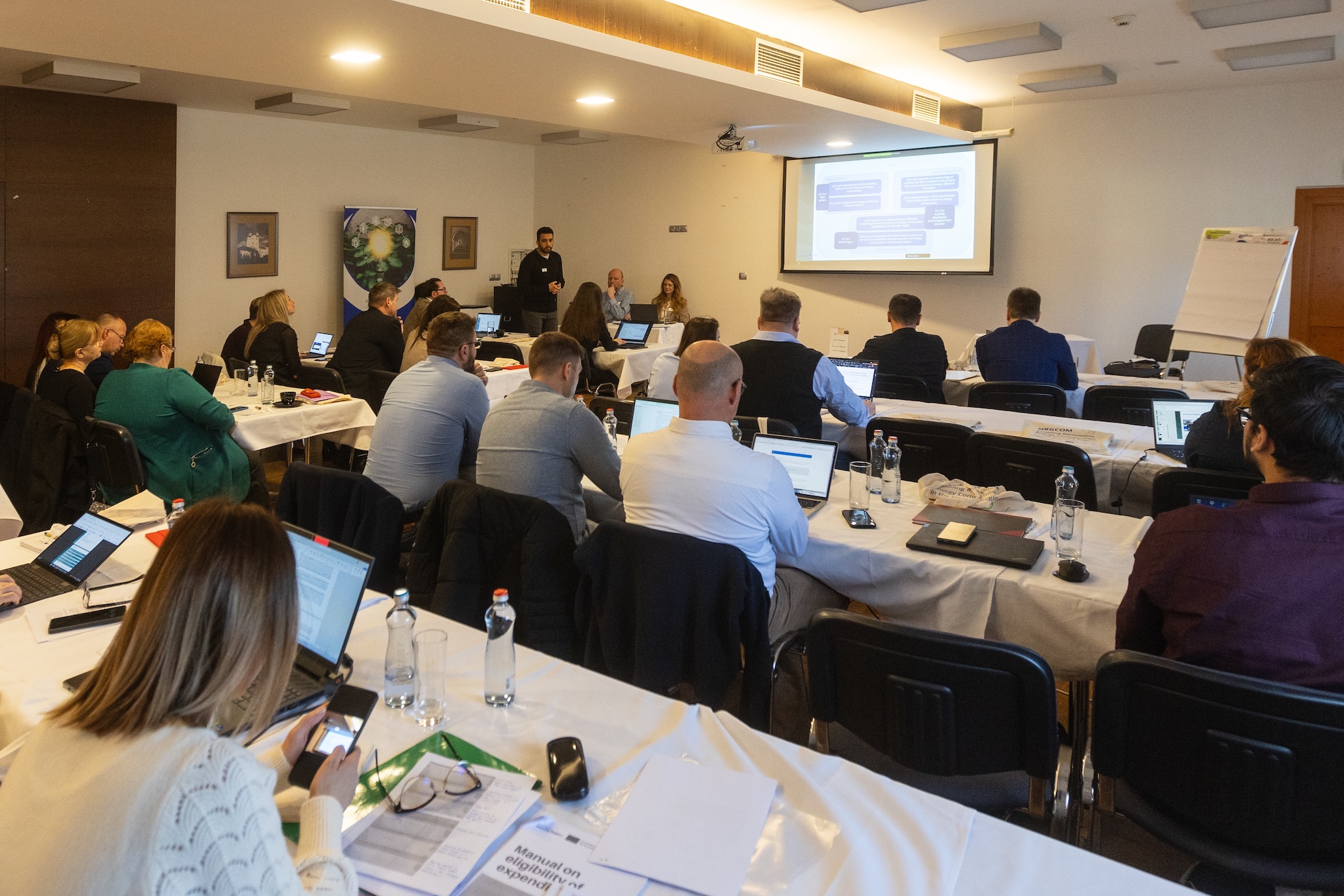
The first-year review session, led by Haász, provided an overview of the project’s progress, including achievements such as the successful establishment of necessary frameworks for energy communities in the Danube Region, situation analyses, and awareness-raising initiatives. Discussions addressed minor budget reallocations and solutions to challenges such as administrative bottlenecks and subcontracting delays. To enhance efficiency, STRIA proposed improved reporting mechanisms and a reinforced internal timeline. Partners agreed on the importance of maintaining momentum in awareness-raising campaigns and ensuring timely delivery of upcoming project outputs.
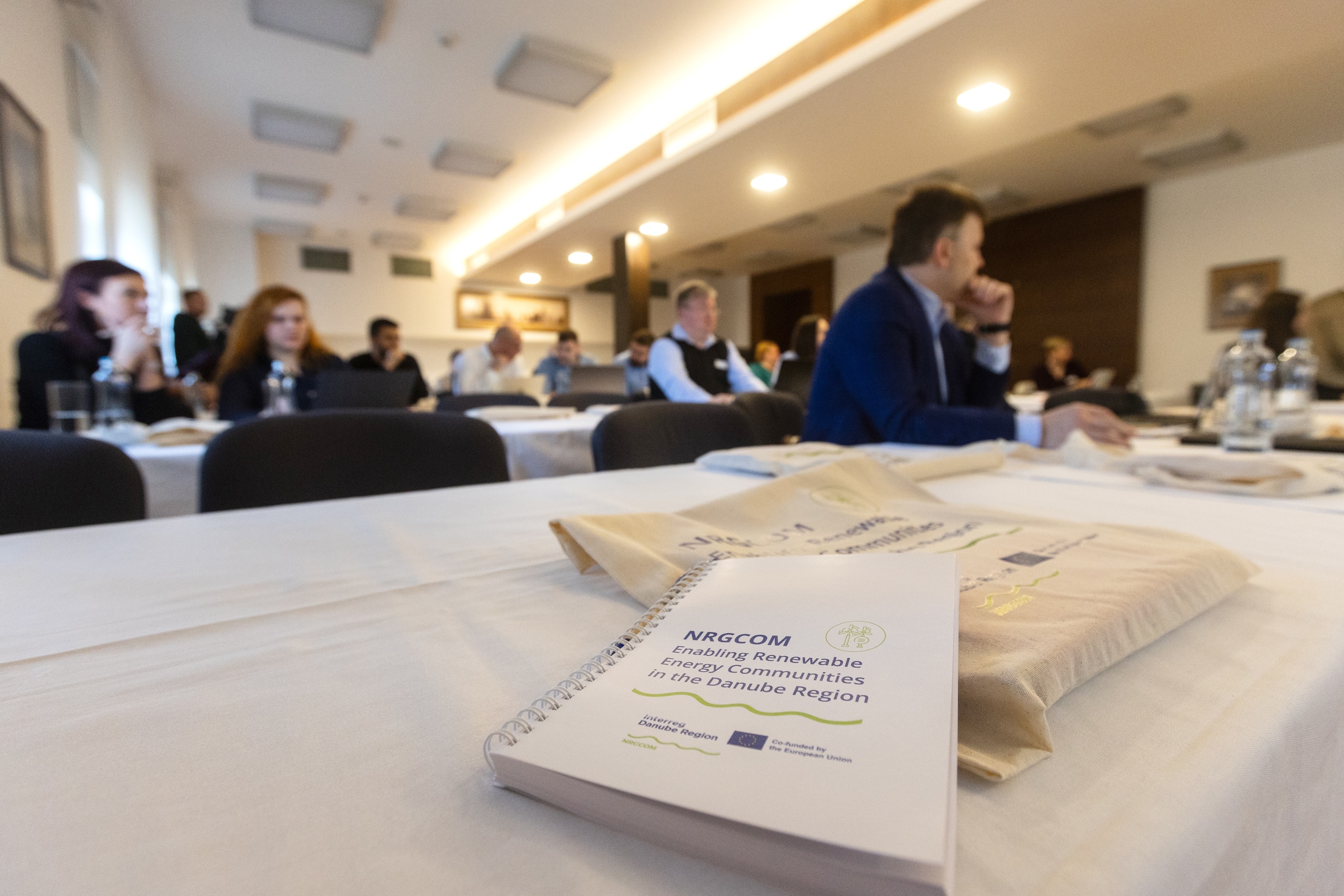
Following this, leaders of Specific Objectives (SOs) presented their progress. Nejc Jurko (KSSENA) outlined advancements in legal and operational frameworks for energy communities, including policy recommendations and transnational roundtables. Réka Zulauf (STRIA) highlighted awareness-raising efforts such as the REC Ambassadors network and national campaigns. Mohamed Elshikh (DIT) detailed pilot testing of mentoring methods and the ETMEC software solution. Additional activity-level presentations covered awareness campaigns, training sessions, and the development of the Awareness Raising Toolkit. Partners shared insights on communication efforts, including social media outreach and video production for public engagement.
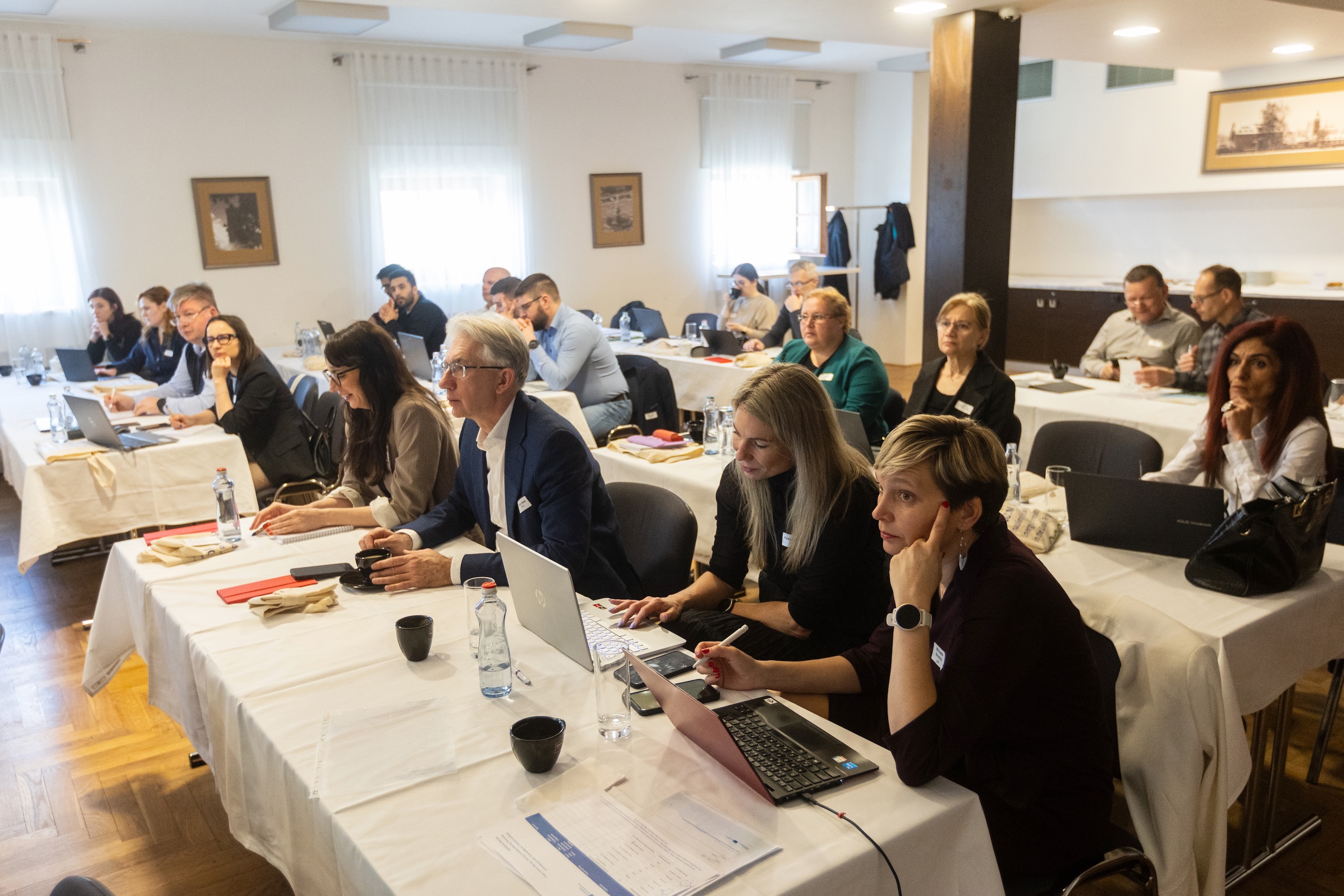
The meeting also addressed ongoing pilot actions in energy communities across Slovenia, Austria, Czech Republic, and Slovakia. Presenters from AEER, JAIP, and PRA detailed technological solutions, data collection strategies, and the creation of a best practices database for knowledge transfer. The Steering Committee meeting focused on governance, reporting deadlines, and internal coordination, reinforcing structured tracking to ensure the timely achievement of project milestones.
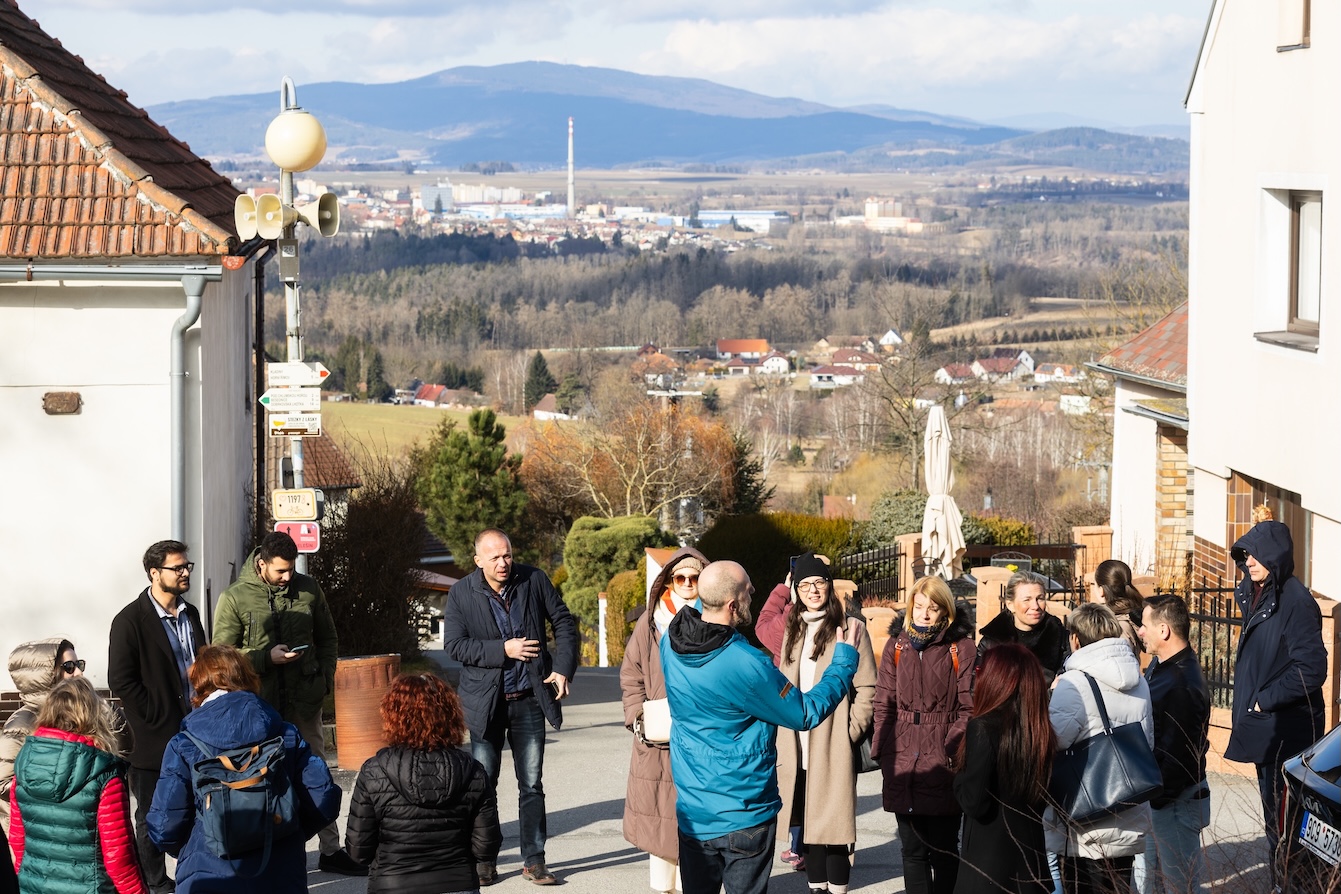
On the final day, partners participated in a study visit to Svatý Jan nad Malší, planned in cooperation with Enerkom Růže, a newly established energy community and a pioneer in community energy initiatives in South Bohemia. The visit provided a valuable opportunity to explore an active municipal energy model and understand its legal and operational aspects. Svatý Jan nad Malší, a village of 600 inhabitants, has been implementing energy management strategies since 2002, when it constructed a municipal wood biomass heating plant. The system currently supplies heat to all municipal buildings, 24 family homes, and two apartment buildings via a district heating network.
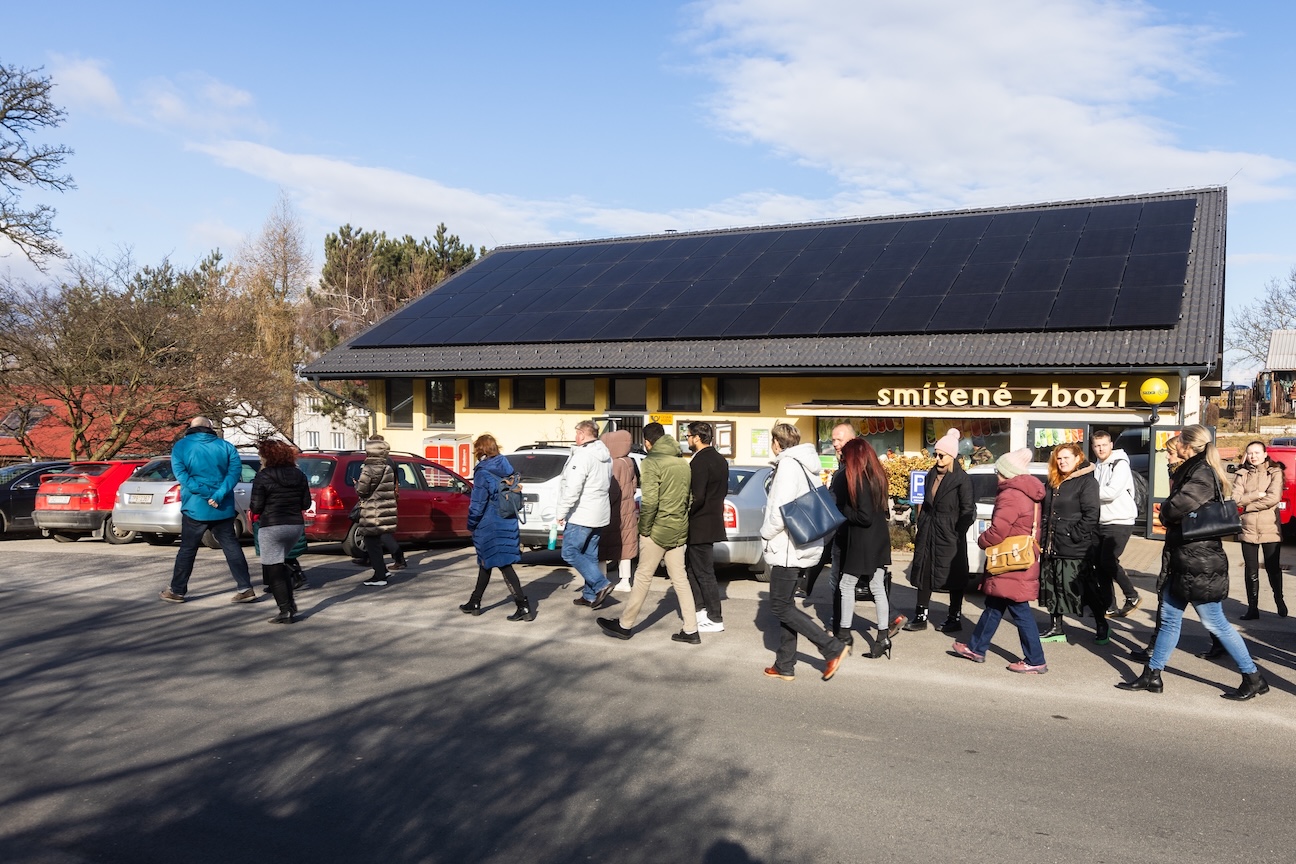
As part of its transition to a more sustainable energy model, the village recently established a photovoltaic power plant with a peak capacity of 24 kW, a crucial step in building an energy community. Additionally, the municipality is currently developing a network of charging stations for electric cars and e-bikes to promote e-mobility. Enerkom Růže is also conducting feasibility studies for the integration of additional consumers on one side and new energy sources, such as a biogas plant, on the other, further strengthening the resilience and efficiency of the local energy network. Participants also had the unique opportunity to witness an innovative approach to physical education at the local school, where children engage in regular outdoor runs in all weather conditions as part of a resilience and wellness initiative.
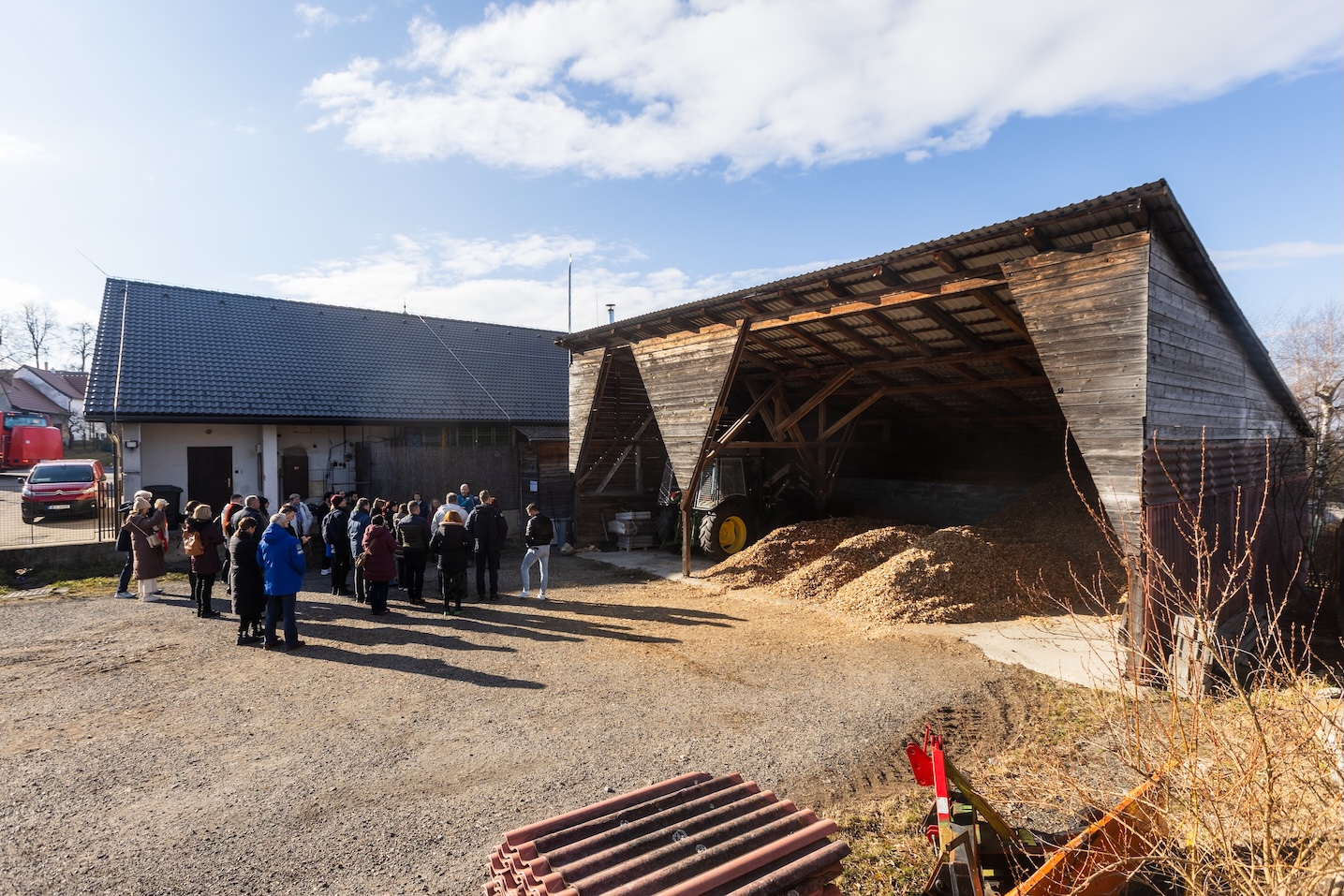
The meeting concluded with partners reaffirming their commitment to the NRGCOM project’s objectives. The discussions reinforced the importance of structured reporting, active engagement, and knowledge sharing, setting the stage for the next phase of implementation. The event highlighted significant progress in promoting renewable energy communities and provided a valuable opportunity for partners to collaborate on innovative solutions for sustainable energy management.
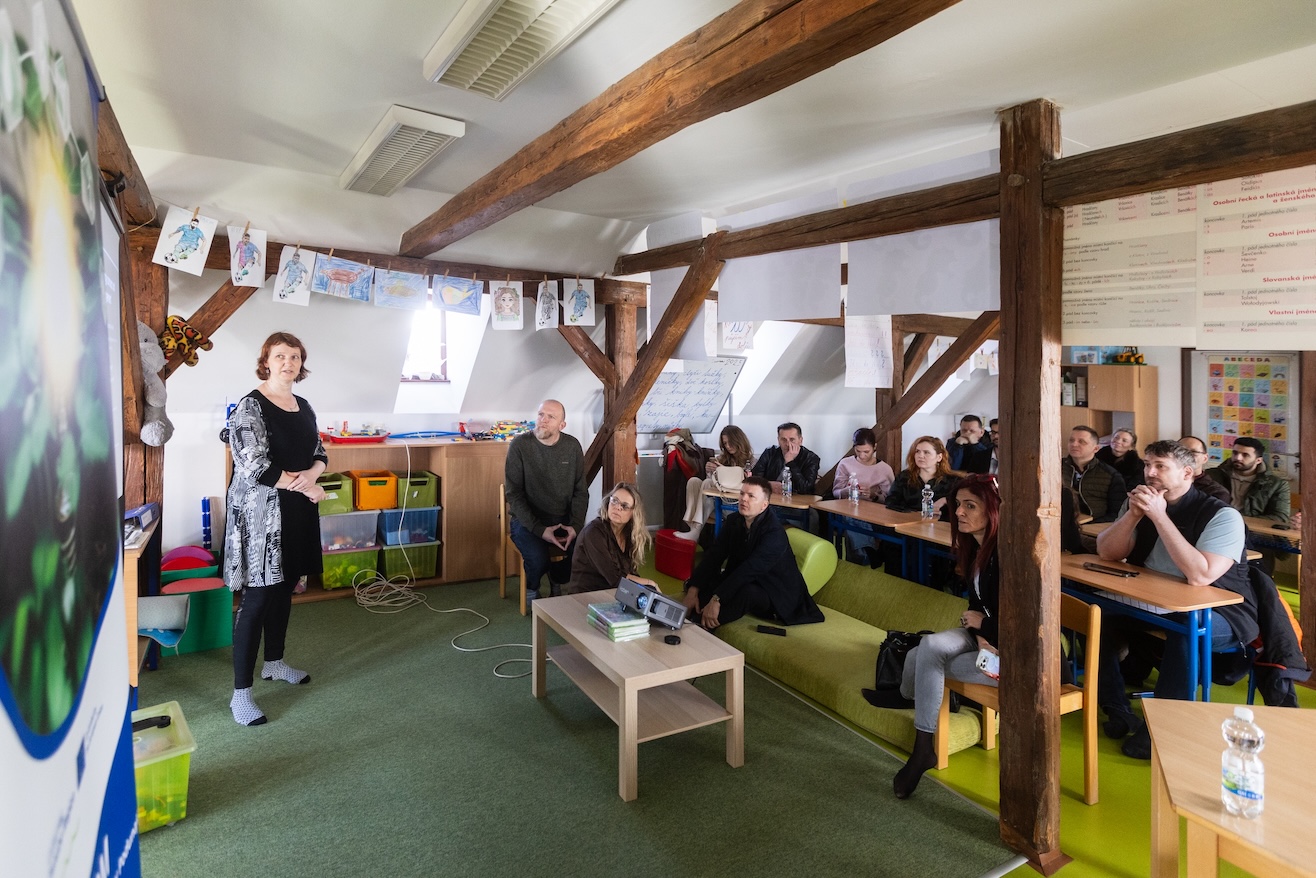
News & Events
Read the most recent updates and explore the upcoming events.

